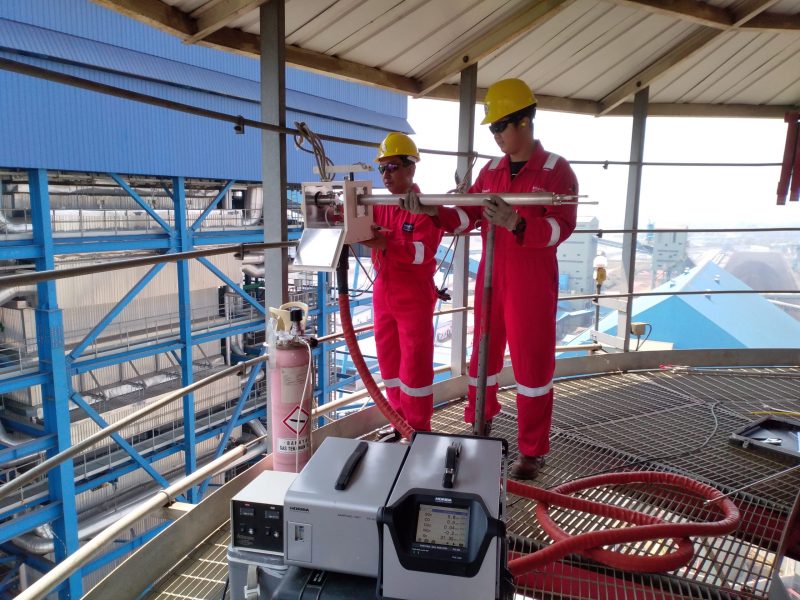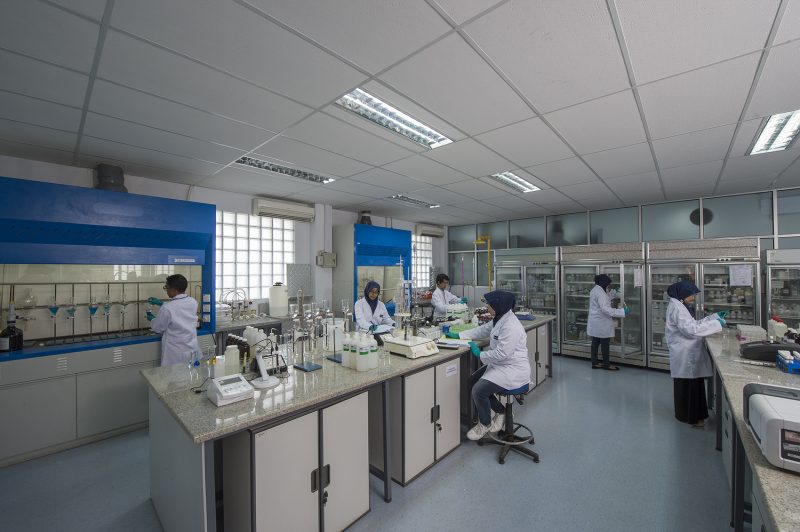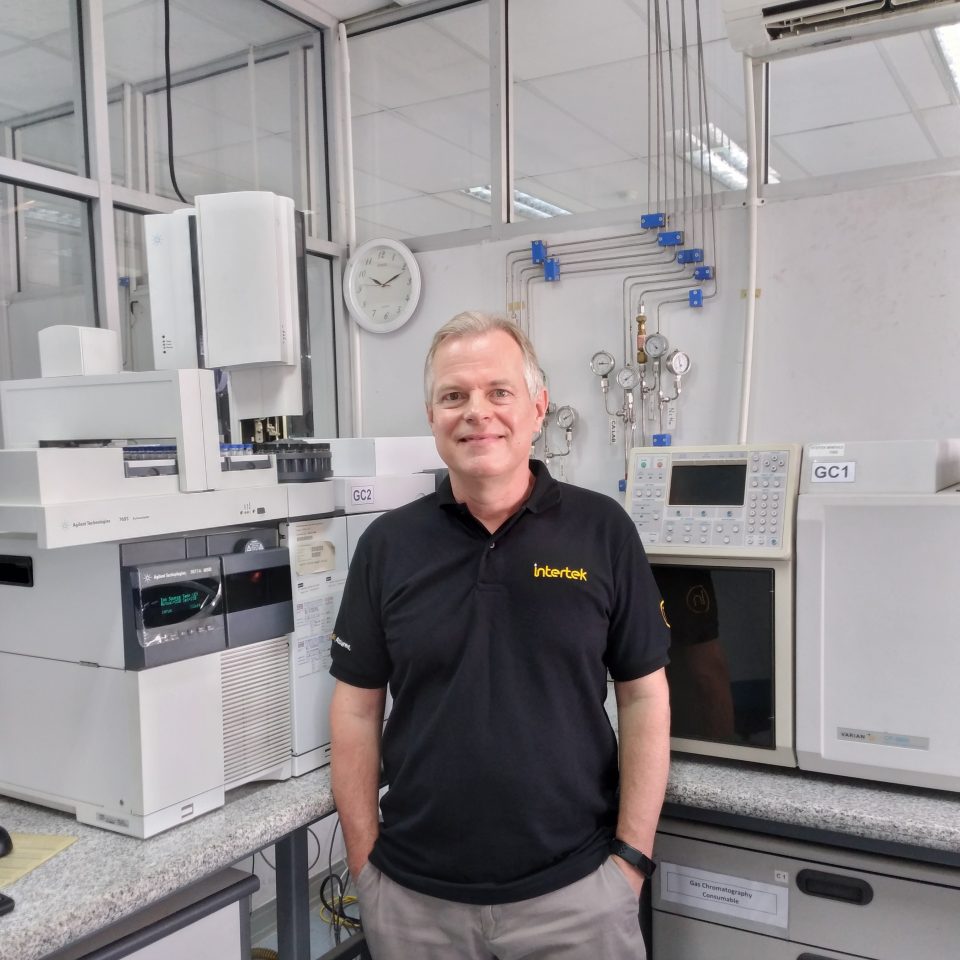Reg de Wit found himself back in Indonesia following his true passion: environmental testing.
Get to know more about Reg’s story and how he is pioneering future actions on Intertek’s environmental efforts in Indonesia.
Hi, Reg! Where are you from and what’s the reason behind your move to Indonesia?
I’m from Vancouver, Canada but spent most of my youth overseas as my father was an expat working for a large American construction company. I think, because of my years growing up in places like Saudi Arabia, Venezuela, and Indonesia, I longed for the same experiences my father had. Working overseas opened so many doors for him. For the rest of the family, it was an eye-opening experience that I think turned us into true global citizens.
My lucky break came when I was working for a small Canadian environmental laboratory company that received government funding to help it set up labs in Chile and Indonesia. I chose Indonesia as I had wonderful memories of growing up in Sulawesi and could even remember some Bahasa Indonesia. After accepting the position, I spent two years in Bogor and found my background was of interest to other employers. After many years and three very different jobs, I found myself back where I had started – working in the environmental testing field – my true passion. I now work with PT Intertek Utama Services which was keen on growing its small environmental testing lab. I started with four staff and today we have over 50 staff and perform a wide range of services, from air quality testing to stack emissions to water quality and B3 waste characterization.
As the Environmental Services Manager at Intertek Indonesia, can you tell us more about Intertek’s environmental efforts?
When I started on this amazing challenge, my idea was to set up an environmental laboratory with the same standards as the one I left in Canada. Ethics and data integrity are the hallmarks of what we are all about at Intertek. I found it challenging at first because, on occasion, some companies would become upset if, for example, their result was well above the “maximum allowable limit”, for stack emissions for example. Our staff knows very well that our code of conduct will never allow “data alteration”. In Indonesia, our niche over the years has become providing services to companies that care about their environmental impact and want to know if they have a problem.
Intertek’s Environmental Division is highly regarded as a leader in providing high-quality data and dedicated customer support. Why is that, in your opinion?
When I began working here, I noticed that it seemed common that all communications between clients and the laboratory went through the lab manager. That’s not how we did it back in Vancouver. I changed the structure so that all clients get assigned to client relations officers who take it upon themselves to learn all about our client projects and their specific needs. We leave running the lab to the lab manager – he’s got enough on his plate already!
Jakarta is synonymous with its poor air quality. How does Intertek contribute to this issue?
Through our links with other Intertek branch labs around the world, we get access to great technical knowledge. When given the opportunity, we like to share this knowledge with the government. Some laws still prescribe the use of equipment or methods for which there is much better technology providing better accuracy in measuring pollutants, e.g. gases in the air. Some of our staff participate in government technical committees where they advocate for the adoption of these newer technologies.
Clean water supply is considered a luxury in rural areas of Indonesia, especially with mass tourism projects increasing. How is water quality monitored?
Indonesia began implementing a program called “Onlimo” which stands for online monitoring of river water, based on a 2018 regulation. This is well underway and monitoring equipment is being installed by the government in major rivers. This equipment reports live readings such as pH, dissolved oxygen, turbidity, ammonia, nitrates, and other parameters. In addition to this, another new regulation requires major polluters to report online their contaminant levels directly in the waste they intend to discharge – the Sparing program.
How is emission testing conducted?
Our staff actually climb up tall smokestacks where they then locate a special flange that allows them to insert long, stainless-steel probes that extract gas and particulates into small bottles and onto filters. These samples are brought back to our lab and analyzed for contaminants such as SOx, NOx, CO, acids, mercury, and other heavy metals. Sampling for particulates must be performed especially – isokinetically, which means we must match our equipment flow rate with the flow rate of the hot gases in the stack itself. Our staff was specially trained by an Australian senior consultant and today we are considered leaders in this area.
Indoor air quality (IAQ) is an important factor in homes, offices, and public places nowadays with the COVID-19 pandemic not seemingly disappearing anytime soon. What solution does Intertek provide to alleviate this concern?
We have very good equipment imported from New Zealand which allows us to measure particulate and gases accurately in indoor air. One might ask, “why is it important to measure IAQ accurately?” Well, the WHO last March announced that controlling building ventilation can improve IAQ and reduce the risk of health concerns such as the spread of the COVID-19 virus. By taking measurements, we can see if a building’s IAQ is good or poor. After building management has made changes to the ventilation system, we can see how much things have improved. For buildings using air purifiers, we can see “by how much” the room has been cleared of particulate. By doing so, we can then also see how well air purifiers would remove bioaerosols, which are the tiny particles we exhale that can potentially contain viruses.
Intertek has a PCR machine for testing COVID-19 on surfaces. Is this available to be used by companies or households? What’s the technology behind this?
This service can be used by anyone who wishes to see if the virus is present on any high contact surfaces like doorknobs, water faucets, handrails, etc. Along with pooling saliva samples from large groups of people, e.g. classrooms, we can provide a type of “surveillance” service; looking to see if an area has been exposed to an individual who is shedding the virus.
Why choose Intertek and its environmental data?
We like to tell our clients we provide an international standard of data integrity. That means clients receive data that is defensible and transparent. Fortunately, we find enough clients who demand this standard to be able to operate successfully in Indonesia
We’d love to know more about your story, Reg.
After landing back on my feet at Intertek, I ended up getting married to my long-time Indonesian girlfriend and now we have two beautiful daughters who are proud of the fact they’re Indonesian and Canadian citizens. Our family loves traveling and we hope soon to see orangutans and the amazing sights of Central Kalimantan.
From your point of view, what do Indonesia’s diverse culture and rich history tell you about the country?
Both my parents were originally from Holland. We grew up cooking Indonesian dishes and hearing from relatives about their time living in Indonesia in the old days. At one point, I had to drive a cousin to the Menteng area to find the house in which she was born.
I’m lucky in that my different jobs here have allowed me to travel to all corners of this amazing archipelago to visit clients. Indonesia has so many ethnic groups, it’s amazing how it’s able to bind together into one nation. I think it’s that very fact of living on so many different islands that make its people so unique and, at the same time, have a commonality.
As we often work with mining companies – and their mines tend to be located in very remote areas – I have seen Papuans in their native dress in the highlands. I’ve been to Halmahera and got to hear all about the Toboali forest people. I’ve been to Wetar island, located right on the Wallace line, and saw old Portuguese graveyards. Indonesia happens to be an anthropologist’s dream assignment. I’ve noticed over the years that, although diversity can initially cause conflict, in the end, a spirit of gotong royong appears and changes are made to accommodate the issues of the day. I truly believe Indonesia has enormous potential and that it is just getting started on its journey to becoming a major global player.
How can our readers reach you and Intertek Indonesia?
I’m happy to answer any questions related to environmental testing. I can be reached via email at [email protected] or [email protected], WhatsApp at +62811193548 or phone at +6221 2938 4454.




